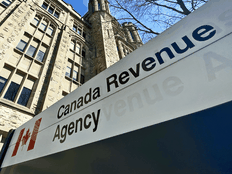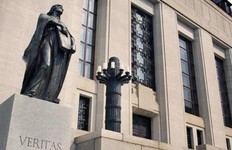MANDEL: Appeal court reverses reprieve for aspiring lawyers caught in exam cheating scandal

Article content
It looks like cheaters never prosper, after all.
Ontario’s highest court has just reversed a reprieve granted to a group of aspiring Ontario lawyers implicated in a shocking 2021 cheating scam that saw 10% of those writing the online bar admission course flagged for possibly having advance questions or answers.
In 2023, the Divisional Court ruled the Law Society of Ontario went too far and struck down all the sanctions imposed by the regulator against the alleged cheaters except for their need to rewrite the exam. It found the LSO had breached the poor applicants’ right to procedural fairness because the penalties — including having to disclose the cheating on re-registration — required a hearing to determine if there was intentional misconduct.
Not so, the Ontario Court of Appeal has just ruled, agreeing with the LSO that the exam writers were treated fairly and the penalties may stand.
“There is nothing in the LSA (Law Society Act), regulations, by-laws or rules of practice and procedure that requires a hearing to be held before a decision is made under Bylaw 4 (which governs licensing) or the Licensing Process Policies,” wrote Justice Eileen Gillese on behalf of the three-judge panel.
Passing the bar exams is the final hurdle for would-be lawyers.
Recommended video
In March 2022, that month’s scheduled exams were abruptly cancelled after the law society announced that the November 2021 sitting had been compromised. According to the ruling, the LSO became aware “that a tutoring agency, NCA Exam Guru (“NEG”), had obtained copies of the exams prior to their administration. The LSO also obtained four answer sheets, referred to as ‘cheating keys’, which duplicated the LSO exam questions and provided answers.”
The LSO is now suing NEG and its principal, Aamer Chaudhry, for allegedly leaking exam questions and answers to their clients. The Mississauga exam prep company has denied all allegations and released a statement at the time insisting the “allegations are not proven and we will vigorously defend (the claim) as appropriate through the courts.“
Caveon Exam Security was hired by the law society to analyze the answers by all candidates who wrote that November and it identified anomalies in about 10% of the exams, suggesting the writer, “whether intentionally or inadvertently, had advance access to a cheating key.”
Following the investigation, the LSO notified 126 candidates, virtually all with ties to NEG, that their exams were being voided. They’d have to wait a year before they could re-register for the licensing process and their articling – or their exemption based on previous experience such as working as a lawyer in another country – would have to be repeated.
They also had to answer “yes” to the question on the “Good Character” section of the registration form asking whether they’d ever been sanctioned or had a penalty imposed on them by a court, administrative tribunal, or regulatory body.
The LSO then reserved the right to conduct a further investigation into their good character and would share its decision with other law societies across Canada, which had already been advised of the investigation.
Twenty of the candidates applied to the Divisional Court for judicial review. The court was sympathetic, finding they’d suffered a “permanent stain on their reputation” and were denied a fair hearing.
But the appeal court found that every applicant was informed of the specific evidence against them, given several chances to make written submissions and then offered an internal review of the decision by the executive director.
“The LSO has a duty to protect the public interest, maintain public confidence in the profession, and ensure the entry-level competence of incoming licensees. It is to be afforded considerable latitude in regulating the legal profession and in determining how the duty to protect the public interest can best be furthered in the context of a particular discretionary decision,” Gillese concluded.
“In my view, when considered in the factual and legislative context, the procedures the Licensing Department followed satisfied the Applicants’ right to procedural fairness.”
So, hopefully those sanctions are back in place — because when the fundamental principle of a profession is integrity, cheaters need not apply.
mmandel@postmedia.com











Postmedia is committed to maintaining a lively but civil forum for discussion. Please keep comments relevant and respectful. Comments may take up to an hour to appear on the site. You will receive an email if there is a reply to your comment, an update to a thread you follow or if a user you follow comments. Visit our Community Guidelines for more information.